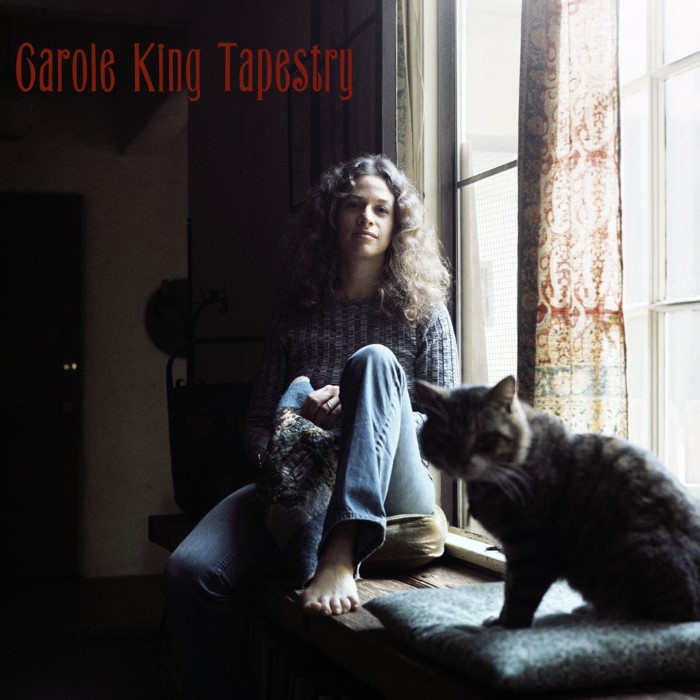Tapestry by Carole King

<b>100 Best Albums</b> It would all sound trite, if it weren’t so true: In the late 1960s, a seasoned professional New York songsmith moves to Laurel Canyon, finds her voice in a whole new way and emerges with one of the biggest records of the 1970s. That’s the shorthand history behind Carole King’s 1971 hit <i>Tapestry</i>, an iconic entry in the canon of genre-agnostic singer-songwriters, and the album that marked the dawning of King’s second act. Working alongside like-minded West Coast artists James Taylor and Joni Mitchell, the hitmaking singer narrowed her scope, stripping down and getting personal as a songwriter and a performer—and, in doing so, creating a timeless standard for confessional expression. In a decade dominated by monolithic pop albums, <i>Tapestry</i> became one of the biggest, eventually selling more than 14 million copies. Even before the album’s release, King had helped reshape American pop music as a songwriter, her work often speaking for women as a group: She articulated previously masked vulnerability on The Shirelles’ “Will You Love Me Tomorrow”, and expressed daring, earthy sensuality on Aretha Franklin’s “(You Make Me Feel Like) a Natural Woman”. But on <i>Tapestry</i>, her second album as a soloist, King reclaims those songs, using them to tell her own story along with a slew of new compositions. Her previous hits had been co-written with her ex-husband, Gerry Goffin, but on <i>Tapestry</i>, King accepted one new songwriting collaborator: Toni Stern, who provided lyrics for “It’s Too Late” and “Where You Lead”. Besides Stern’s sterling contributions, King centered her own words, voice and piano-playing. And throughout <i>Tapestry</i>, her gutting honesty and earnest optimism are channelled with the easy fluency of a veteran pop songwriter. Individually, the songs have long since been woven into pop music’s unconscious: “I Feel The Earth Move” became an instant R&B classic; “You’ve Got A Friend” remains a somehow-never-saccharine pledge of loyalty; and “It’s Too Late” is the break-up anthem to end all break-up anthems. Together, they weave a <i>Tapestry</i> about the power of vulnerability, one that King performs with unflinching and carefree power, wrapping everything in an unpretentious and lovely musical package.
